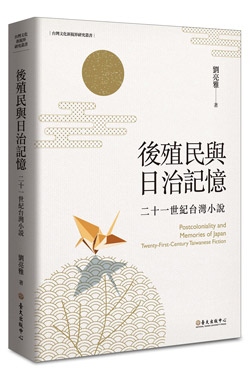
Humanities & Social Sciences
Postcoloniality and Memories of Japan: Twenty-First-Century Taiwanese Fiction
Introduction
Revisiting Taiwan’s Japanese Period (1895-1945) has become a major feature of twenty-first-century Taiwanese fiction and film. Many contemporary Taiwanese novelists and filmmakers find it important to understand what the Taiwanese (including the aboriginals) thought and believed as well as the structure of feelings they harbored during that period, a period that was denigrated and largely obliterated in official history during postwar Kuomintang’s martial rule. Perhaps just as importantly, these contemporary authors and filmmakers are concerned with how the Taiwanese (including the aboriginals) living through these two periods re-membered the Japanese Period.
By contextualizing novels by Shih Shu-ching, Li Ang, Wu Ming-yi, Kuo Chiang-Sheng, and Gan Yao-ming as well as Wei Te-sheng’s feature film Seediq Bale, in tandem with careful readings of these texts, this book argues that these texts can be seen as engaged in a large project of re-memory from a postcolonial perspective. Revisiting Taiwan’s Japanese Period in these texts not only explores pro-Japanese, anti-Japanese sentiments, and ambivalence toward Japan, but highlights an evaluation of Japanese and Kuomintang rule. Reconnecting prewar and postwar Taiwan eventually points to Taiwan’s postcoloniality by suggesting Taiwan is a young nation with its long colonial history, with its people both fighting colonialisms and influenced by colonial legacies.
By contextualizing novels by Shih Shu-ching, Li Ang, Wu Ming-yi, Kuo Chiang-Sheng, and Gan Yao-ming as well as Wei Te-sheng’s feature film Seediq Bale, in tandem with careful readings of these texts, this book argues that these texts can be seen as engaged in a large project of re-memory from a postcolonial perspective. Revisiting Taiwan’s Japanese Period in these texts not only explores pro-Japanese, anti-Japanese sentiments, and ambivalence toward Japan, but highlights an evaluation of Japanese and Kuomintang rule. Reconnecting prewar and postwar Taiwan eventually points to Taiwan’s postcoloniality by suggesting Taiwan is a young nation with its long colonial history, with its people both fighting colonialisms and influenced by colonial legacies.
Info
Category:Humanities & Social Sciences
Author:Liang-ya Liou
Publisher:National Taiwan University Press
Rights Contact:Wei-Han Chen
Email:weihan@ntu.edu.tw
ISBN:9789863504177




